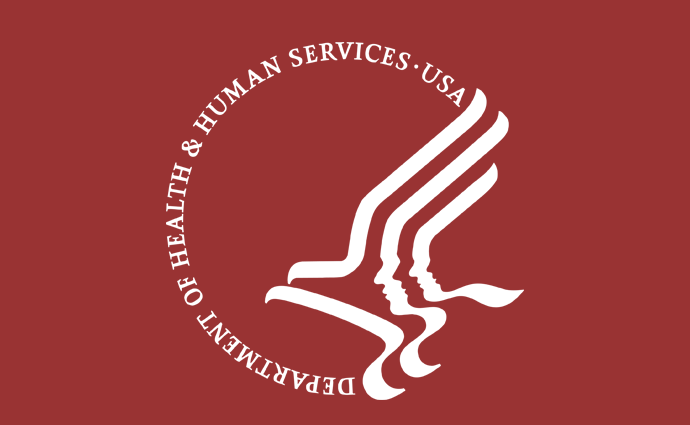HHS Approval Boosts Access to Care for Incarcerated Medicaid Beneficiaries
The section 1115 demonstration approval allows incarcerated Medicaid beneficiaries in California to receive healthcare services, such as substance use disorder treatment, before their release.

Source: HHS Logo
- The US Department of Health and Human Services (HHS), through the Centers for Medicare and Medicaid Services (CMS), has approved a section 1115 demonstration in California to help improve access to behavioral healthcare for incarcerated Medicaid beneficiaries.
“The Biden-Harris Administration is focused on expanding access to healthcare across the country and doing so with equity in mind. In partnership with HHS, the state of California is leading the way in providing coverage to justice-involved individuals,” HHS Secretary Xavier Becerra said in the press release.
“This is the first time in history Medicaid will be providing coverage to justice-involved individuals before they’re released. It is a step forward in closing gaps in services this underserved community experiences, and I encourage other states to follow California’s lead.”
The amendment includes critical pre-release services and will help facilitate access to care for Medicaid and CHIP beneficiaries returning home after incarceration.
For example, Medi-Cal, California’s Medicaid program, will be able to cover substance use treatment before an individual is released from jail, prison, or a youth correctional facility. Beneficiaries can connect with community-based Medicaid providers 90 days before release to ensure they can continue treatment following incarceration.
California’s goals center around increasing coverage, continuity of care, and service uptake for people in carceral settings before and after their release. The demonstration will help improve coordination and communication between correctional systems, Medicaid and CHIP programs, managed care plans, and community-based providers, according to the press release.
The state aims to reduce suicide-related deaths, overdoses, and overdose-related deaths after individuals leave carceral settings by offering interventions for behavioral health conditions and providing stabilizing medications for addiction treatment for substance use disorders.
Additionally, California hopes the demonstration will reduce post-release acute care use among recently incarcerated Medicaid beneficiaries, including emergency department visits and inpatient hospitalizations.
The demonstration will allow the state to identify, stabilize, and manage severe physical and behavioral health conditions before an individual’s release that can be treated with ambulatory care or minimized by an increased uptake of preventive and routine care.
The demonstration’s pre-release coverage authority aligns with the guidance included in the Substance Use Disorder Prevention that Promotes Opioid Recovery and Treatment for Patients and Communities (SUPPORT) Act.
In addition, the approval furthers President Biden’s May 2022 executive order to advance effective, accountable policing and criminal justice practices. This includes improving treatment and rehabilitation in carceral settings and supporting successful entry.
HHS noted that this is the first time Medicaid will cover healthcare services provided to justice-involved individuals before they are released, which is a key aspect of Biden’s proposed public safety package, the Safer America Plan.
The approval coincides with a recent report from the HHS Office of the Assistance Secretary for Planning and Evaluation (ASPE), which found that recently incarcerated people face disproportionately high rates of substance use disorder, serious mental illness, and chronic physical health conditions after returning to the community.
In addition to improving care access for incarcerated Medicaid beneficiaries, the demonstration will allow California to increase and maintain provider payment rates and Medicaid managed care payment rates in obstetrics, primary care, and behavioral health through Designated State Health Program (DSHP) funding.
The state must perform a comprehensive evaluation of the approved section 1115 demonstration per CMS requirements.
A handful of other states, including Arizona, Kentucky, Massachusetts, Montana, New Jersey, New York, Oregon, Utah, Vermont, and Washington, have also submitted section 1115 demonstration waivers to CMS to improve healthcare for incarcerated Medicaid beneficiaries.
Past data has found that pre-release Medicaid enrollment assistance can help boost outpatient treatment utilization for incarcerated individuals with substance use disorders.
Similarly, Medicaid expansion was associated with increased health insurance coverage for people with recent criminal legal involvement.
